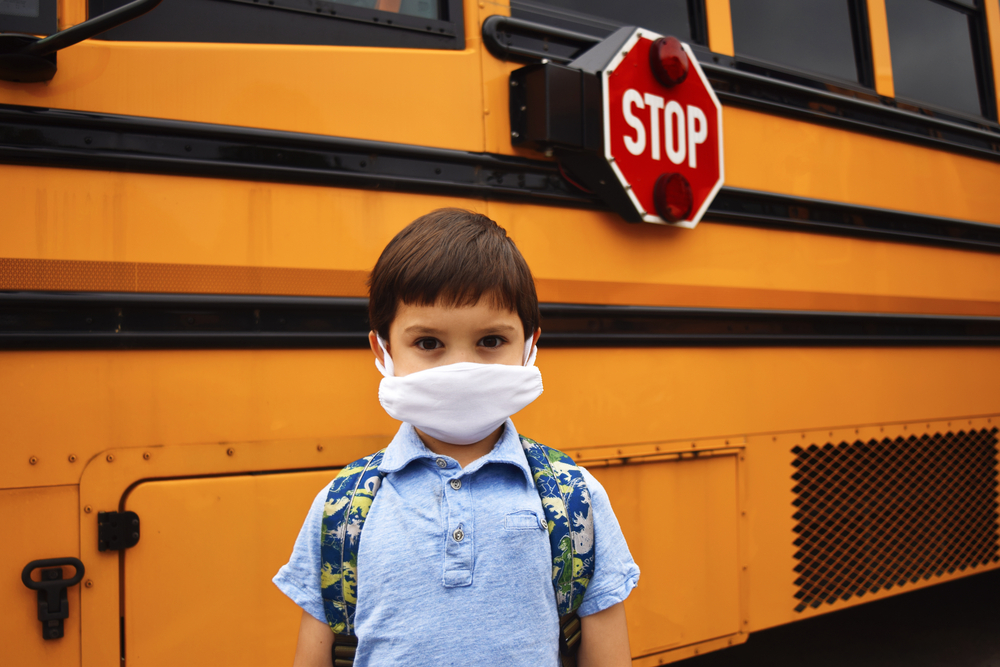Children across the country are headed back to school. Amidst what is an extremely challenging time for parents, and regardless of whether your child will be attending school in person, continuing virtual instruction, a combination, or an uncertain future, you may have questions about your workplace rights.
Here are the 10 legal protections you should know about:
1. The Families First Coronavirus Response Act: Paid Sick Leave
Under the Families First Coronavirus Response Act (FFCRA), if you work for an employer with less than 500 employees—you can take 80 hours of COVID-19 emergency paid sick leave to care for your child when they are sick or need to quarantine or if their school or daycare is closed, among other reasons. (Note: some healthcare providers and emergency responders may be exempt. Some small businesses may be able to claim an exemption from providing leave for school/daycare closures under certain circumstances).
- KNOW YOUR RIGHTS: The Families First Coronavirus Response Act FAQ
- VIDEO: Am I Covered by the FFCRA?
- VIDEO: Emergency Sick Leave to Care for A Loved One
2. The Families First Coronavirus Response Act: Paid Family Leave for School Closures
If you’re covered by the FFCRA, you also can take up to 12 weeks of family leave (10 paid) when your child’s school or place of care is closed or unavailable due to COVID-19. You can also take this leave, if you are covered, if your child’s school is only offering virtual or remote instruction. (Note: This law applies if your child is receiving virtual instruction while school is closed in-person, but it might not apply if you have opted out of in-person instruction. Again, the law applies to workers at businesses with under 500 employees, but some healthcare providers, emergency responders, and small businesses may be able to claim an exemption. Please call A Better Balance if you have further questions about this.)
- KNOW YOUR RIGHTS: The Families First Coronavirus Response Act FAQ
- VIDEO: Emergency Family Leave When Your Child’s School Is Closed
3. The Families First Coronavirus Response Act: Self-Employed Tax Credits
As a self-employed worker, freelancer, or independent contractor, the FFCRA enables you to use tax credits to make up for lost income when you need coronavirus-related time away from work leave, including when you need to care for your child whose school or daycare is closed or whose child care provider is unavailable due to the crisis.
4. State and Local Emergency Paid Sick Time Laws
Some states and cities—including New York and Colorado—have passed laws to fill in gaps in federal emergency paid sick leave, so more workers can take advantage of this important protection.
- Emergency Paid Sick Leave Tracker: State, City, and County Developments for developments in your area
5. State and Local Paid Sick Time Laws
Dozens of paid sick time laws have been passed nationwide. Laws in your state or locality may give you a right to paid sick time that covers time to care for a loved one who is sick or getting medical care, whether in relation to the coronavirus or for ordinary health needs . Many of these laws allow you to use your sick time when your child’s school is closed for a public health emergency.
6. State Paid Family and Medical Leave Laws
Several states have passed paid family and medical leave laws. If you need to care for a child who is seriously ill, you may have a right to take paid family leave under these laws.
- Chart of Every State Paid Family and Medical Leave Law
- Family Leave Works: Resource on New York Paid Family Leave
7. The Family and Medical Leave Act
If you are covered, you may be able to take unpaid—but job-protected—leave under the federal Family and Medical Leave Act (FMLA) to care for yourself or your child with a serious medical condition.
8. Anti-Caregiver-Discrimination Laws
Laws in some states guarantee you a right to be free from discrimination due to the fact that you are a family caregiver, which can help if you are experiencing unequal treatment or retaliation at work because you are caring for your children during the pandemic. Nationwide, it may be illegal sex discrimination if only mothers or only fathers are punished for their caregiving at work.
9. Fair Workweek Laws
Some states and cities—including New York City—have passed laws that allow you to request a change to your schedule (like different hours) without being retaliated against, including for caregiving reasons, requiring advance notice of your schedule, or provide protections against last minute schedule changes.
10. The Americans with Disabilities Act
The Americans with Disability Act prohibits discrimination by association, which means employers cannot discriminate against you because you have a child with a disability.
A Better Balance is here to help. Please contact our free legal helpline (1-833-NEED-ABB) with questions.








